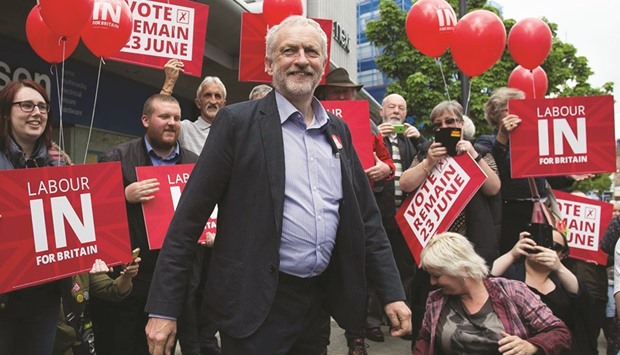Prime Minister David Cameron yesterday said he was not a “closet Brexiteer” and that leaving the European Union would hurt Britain’s economic future and complicate trade deals with countries such as Japan.
Speaking at a meeting of the G7 industrial powers, Cameron rejected a description by a former aide this week that he secretly supported a vote to leave the EU at a referendum on June 23.
“So I have never been a closet Brexiteer,” he told a news conference in Japan.
“I am absolutely passionate about getting the right result, getting this reform in Europe and remaining part of it. It’s in Britain’s interests and that’s what it is all about.”
Cameron delivered an impassioned warning that Britain quitting the European Union in a desperate attempt to curb immigration would “wreck the economy”.
The premier came out fighting after Boris Johnson seized on a rise in migrant workers to claim that leaving the EU was the only way to reclaim border controls.
Cameron conceded that the latest official statistics showing 333,000 net migrants in the year to December, including a record 184,000 from EU countries, were “a disappointment”.
But he went on: “Let me say this to those who want to leave the single market and cause all the damage that would do to jobs and to growth and to investment, I do not believe for one minute that the right way to control immigration is to wreck our economy.”
With 27 days left before the June 23 referendum, the clash confirmed that economic priorities versus immigration control is set to dominate the final debate before Britain decides.
Leaders of the G7 countries — the UK, US, Japan, Germany, France, Italy and Canada — concluded in a statement at the end of the Japan summit that a British exit would be a “serious risk to growth” across the world. Cameron hailed the statement and urged voters to “listen to our friends”.
Cameron said there was now “a consensus” that the UK economy would pay a price for a Brexit, citing warnings from the International Monetary Fund and economic body the OECD.
“It’s not just me saying that there are economic risks from Britain leaving the EU,” he added. “It is now a pretty large consensus that includes people of impeccable independence and academic standing.”
The joint declaration issued by the G7 leaders stated that “UK exit from the EU would reverse the trend toward greater global trade, investment and the jobs they create and is a further serious risk to growth”.

Leader of the opposition Labour Party, Jeremy Corbyn, arrives to deliver a speech on the merits of Britain remaining in the European Union, in Doncaster yesterday.
